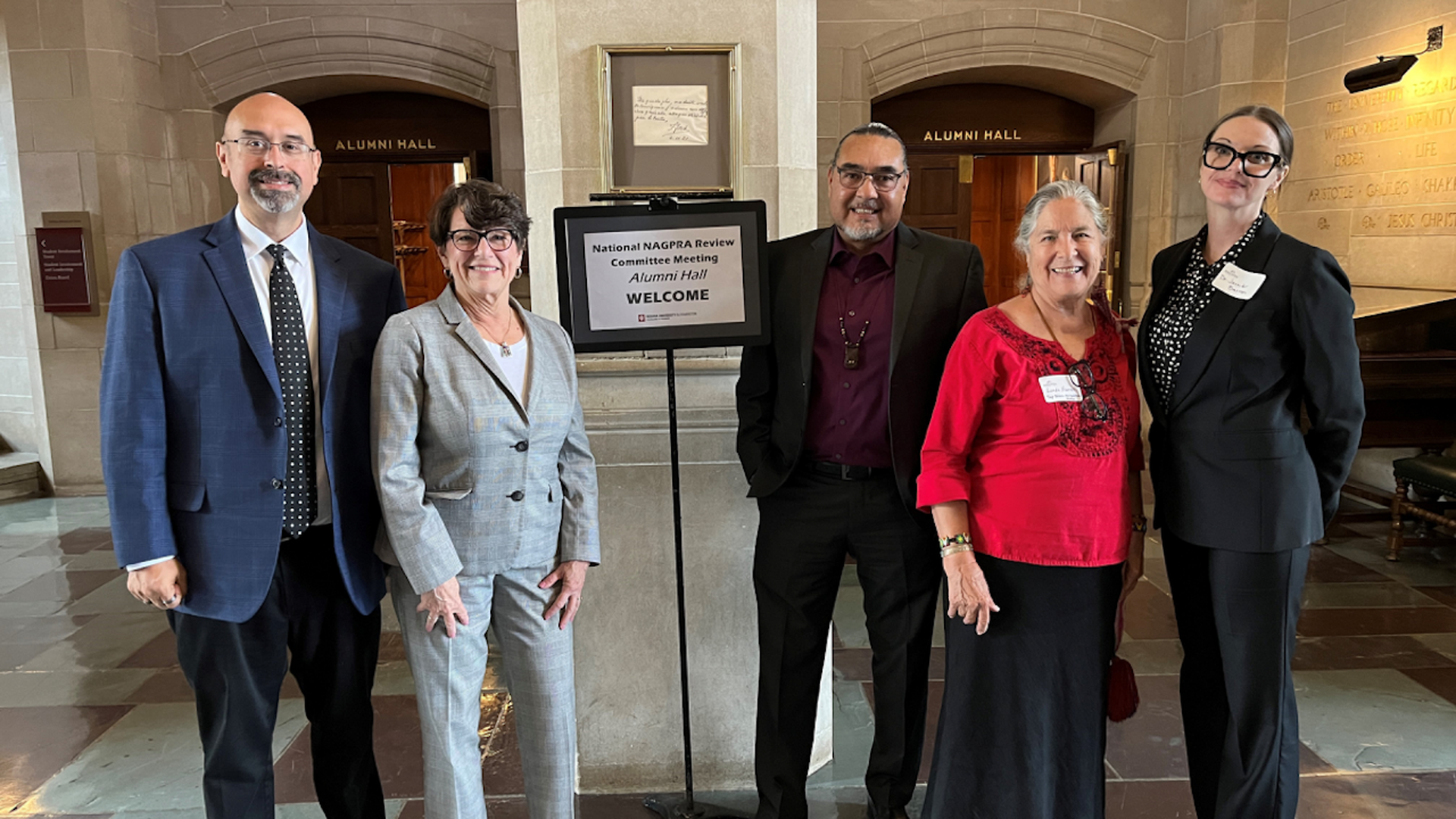Witte Museum to return remains of Indigenous people to their ancestral land
Add Axios as your preferred source to
see more of our stories on Google.

Representatives from the Witte Museum and Tap Pilam Coahuiltecan Nation at the June NAPGRA Review Committee meeting. Photo: Courtesy of the Witte Museum
The Witte Museum is working to return the remains of 31 Indigenous people to their ancestral lands in West Texas this fall.
Why it matters: Native American artifacts and gravesites were looted for many decades, often with the federal government's encouragement, ProPublica reported in January.
Context: Some government agencies, universities and museums in Texas — including the University of Texas at San Antonio and the Witte Museum — continue to hold the remains of Indigenous people. The 1990 federal law governing repatriation of the remains was amended in 2022 to clarify complications around tribal affiliation and compliance.
Catch up fast: The Witte Museum received approval from the Native American Graves Protection and Repatriation Act Review Committee to rebury the remains of 31 of the 62 Coahuiltecan people in the museum's possession.
- Throughout the process, the museum worked with Tap Pilam Coahuiltecan Nation, a nonprofit comprised of Coahuiltecan descendants.
- ProPublica reported a count of 70 remains of individuals in the museum's possession, but Witte spokesperson Jonathan Miles tells Axios there are 62.
Flashback: The remains in the museum's collection are of people who lived between 2,000 and 8,000 years ago. Miles says some of the remains were taken during archaeological excavations in Texas between 1931 and 1969.
What they're saying: "As much as it is a privilege to share the lifeways of these extraordinary people with the children and families who come to the Witte Museum, we know that this information comes with a cost that must be repaid," Marise McDermott, CEO of the Witte Museum, said in a statement.
- "Honoring those who contributed, lived, fought and died will result in the proper respect for human remains and preservation of their final resting place with an acknowledgment of their contributions to the State of Texas for all future generations," Raymond Hernandez, Tap Pilam Nation Tribal Council member, said in a statement.
Between the lines: Institutions must identify remains and consult with tribes to determine where the remains and other items must go. Critics say following the law can be expensive for tribes and involves red tape that delays the return of remains and other sacred objects.
Of note: UTSA's Center for Archaeological Research has the fourth largest collection of unrepatriated Native American remains in Texas, with the remains of 297 Indigenous people.
- The process to return the remains is ongoing, Joe Izbrand, the university's chief communications officer, tells Axios.
What's next: The Witte Museum is working to reinter the remains of the remaining 31 people, who were from a different region.
